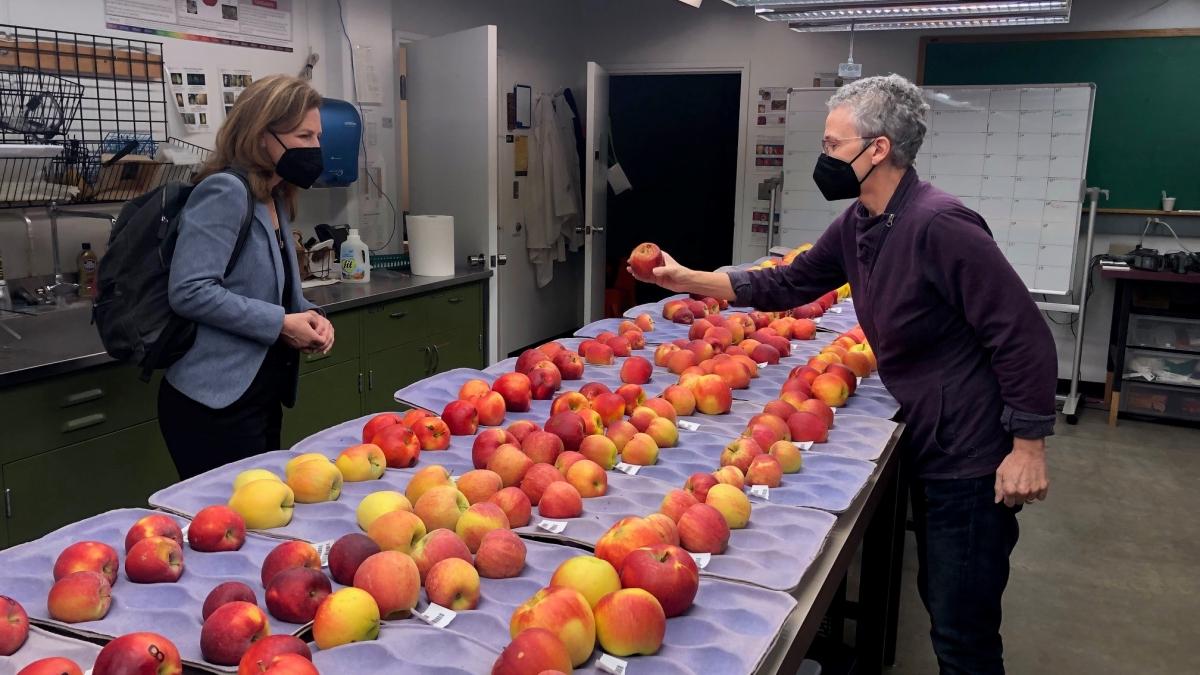Rep. Schrier Presses USDA Secretary on Issues Affecting Growers in the 8th District

WASHINGTON, D.C. – Today, Congresswoman Kim Schrier, M.D. (WA-08) participated in an Agriculture Committee hearing with Secretary of Agriculture Tom Vilsack on the current state of the farming industry and discussed how the USDA can ensure growers and producers in the 8th district are supported by the Department’s trade, supply chain, and climate strategies.
In her remarks, Congresswoman Schrier spoke about ongoing trade wars and the resulting retaliatory tariffs from India and China that continue to harm Washington tree fruit growers. She urged the Biden Administration to do everything in the Department’s power to alleviate stress on small farmers.
During her questioning of Secretary Vilsack, Congresswoman Schrier also asked for specific plans that will allow all farmers, including specialty crop and tree fruit growers, to participate in USDA conservation programs.
“Current policy discussions focused on carbon markets and conservation programs may fall short of what is needed to assist and incentivize producers in my district to adopt costly practices that will further reduce the industry’s carbon footprint,” said Rep. Schrier. “Nevertheless, growers I have talked to are eager to implement climate friendly farming practices and participate in USDA conservation programs. However, too often these programs are tailored to commodity crops like soy and corn and leave specialty crops out.”
Secretary Vilsack responded that USDA is working actively with all sectors of the agriculture industry to design and conduct new demonstration projects for sustainable farming, and he welcomes farmers of the 8th District to take part.
Lastly, Rep. Schrier highlighted that supply chain issues continue to negatively impact an industry that is already facing enduring challenges. Rep. Schrier continued, “On a recent visit to Krainick Dairy in Enumclaw, I heard how hindered access to penicillin and other drugs are impacting operations. Currently, they’re having to use less effective treatments because they can’t get those medicines to treat mastitis and scour. I’m grateful for the significant steps the USDA has taken to alleviate supply difficulties, but much more needs to be done to help family farmers prosper during such precarious times.”